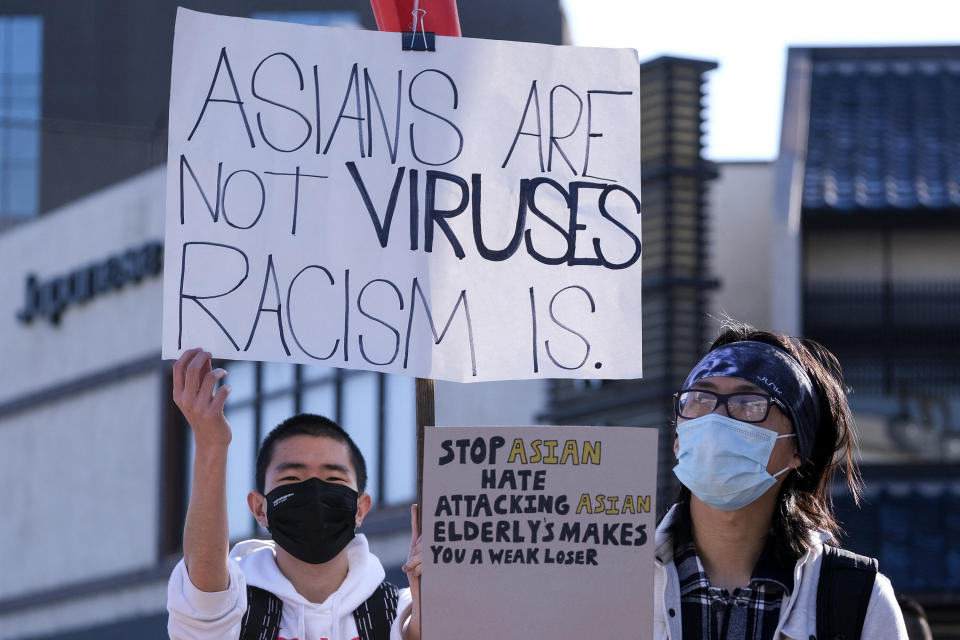In Just One Month, Advocates Collected Nearly 3,000 More Reports Of Anti-Asian Racism
The rise in anti-Asian racism stemming from the COVID-19 pandemic has led to both new incidents of racism and greater public awareness and documentation of such incidents ― resulting in an avalanche of nearly 3,000 new reports just in the month of March to a database created by the advocacy group Stop AAPI Hate.
The group, formed last year to collect and document reports of racist attacks targeting Asian Americans and Pacific Islanders, received “a steep rise” in new incident reports during March, according to new data released Thursday.
In total, the group’s database now includes a staggering 6,603 reports of anti-Asian racism, from when they began collecting the reports last year through March 31 of this year.
That includes 2,808 incidents reported just in the month of March, some of which occurred in 2020 and others of which occurred this year.
The group attributes the “steep rise in reporting” to “increased national attention to anti-Asian hate, which has led to more and more Asian Americans becoming aware of the Stop AAPI Hate reporting center and other resources.”
During the period when Stop AAPI Hate received these new reports, there were a series of violent incidents involving Asian Americans being physically assaulted in public places. Several of the victims were hospitalized, and some later died from their injuries. And on March 16, a white gunman in Georgia killed six women of Asian descent in a string of shootings.
The unrelenting wave of anti-Asian racism has catalyzed even more incidents. Simultaneously, Asian Americans have become more outspoken against them. Stop AAPI Hate and other advocacy groups have routinely stressed that these statistics are likely still an undercount because they are self-reported.

Overall, the group found that the overwhelming majority of incidents involve AAPI individuals being verbally harassed or shunned. Women are nearly twice as likely to report incidents as men, according to the group’s data, a pattern that’s consistent with other reports of AAPI women bearing the brunt of both racist and misogynist attacks.
Some of the new incidents include:
A respondent in Seattle said they noticed graffiti at their neighborhood drugstore that read: “NO ASIAN PARKING.”
According to a respondent in West Lafayette, Indiana, at a public bathroom inside a grocery store, “a white man and his son were at the bathroom [and] when [the] white man saw me, he said ‘Sh*t, there is an Asian coming!’ He called his son, and quickly escaped the bathroom.”
A respondent in Boston reported an incident on behalf of “my elderly mother.” While waiting for the subway, “someone tried to push her off the platform down into the train tracks,” the respondent wrote. “She screamed and a fellow bystander chased off the perpetrator. The good samaritan stood nearby my mom until she boarded the train safely.”
In Carmel, California, a respondent said there has been “harassment/discrimination against Asian healthcare workers” and reported overhearing “two physicians ... discussing the origin of the virus and calling it the ‘China virus’ in front of the rest of the staff in the hospital.”
Related...
This Is What It's Like To Be An Asian Woman In The Age Of The Coronavirus
There Have Been Nearly 4,000 Incidents Of Anti-Asian Racism In The Last Year
Asian Americans Leading The Way In Art And Activism
As Anti-Asian Violence Climbs, Bystander Training Is Becoming Essential
This article originally appeared on HuffPost and has been updated.


